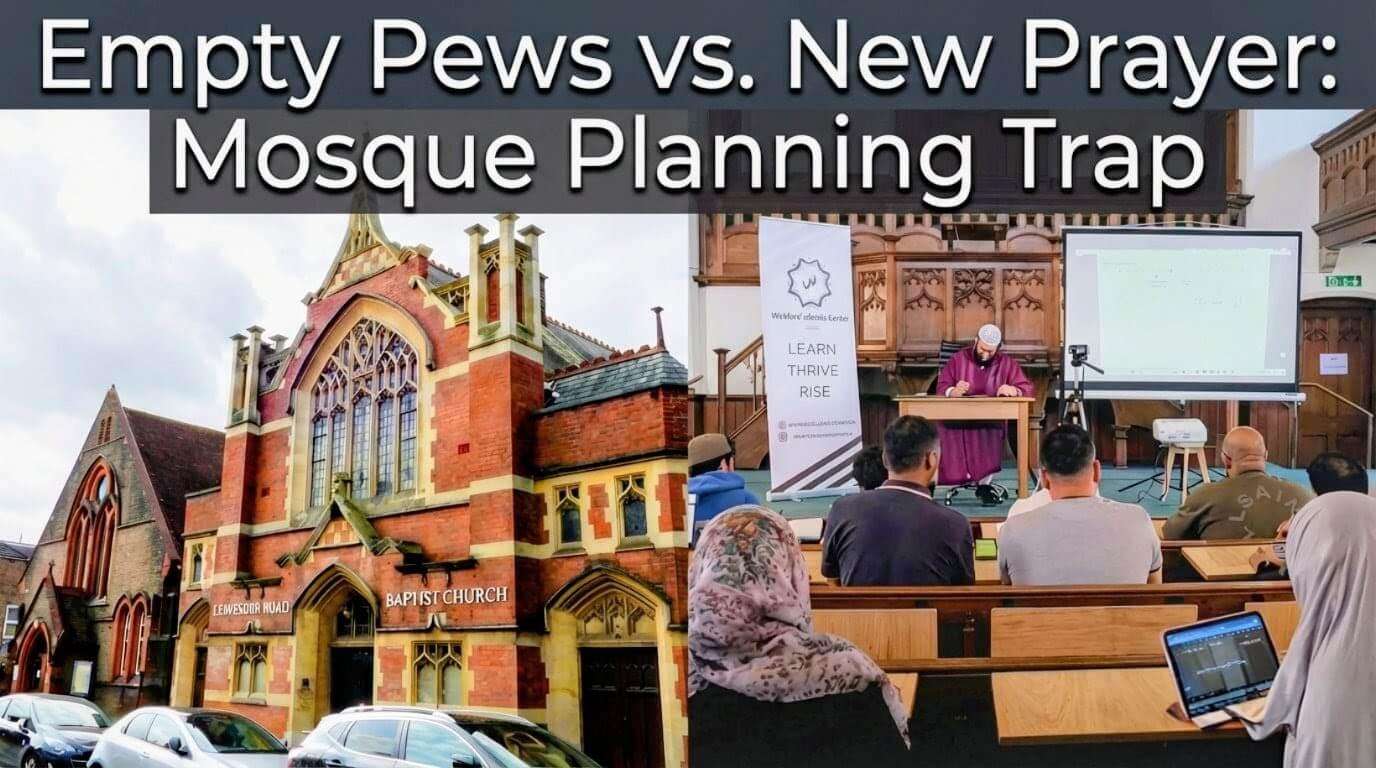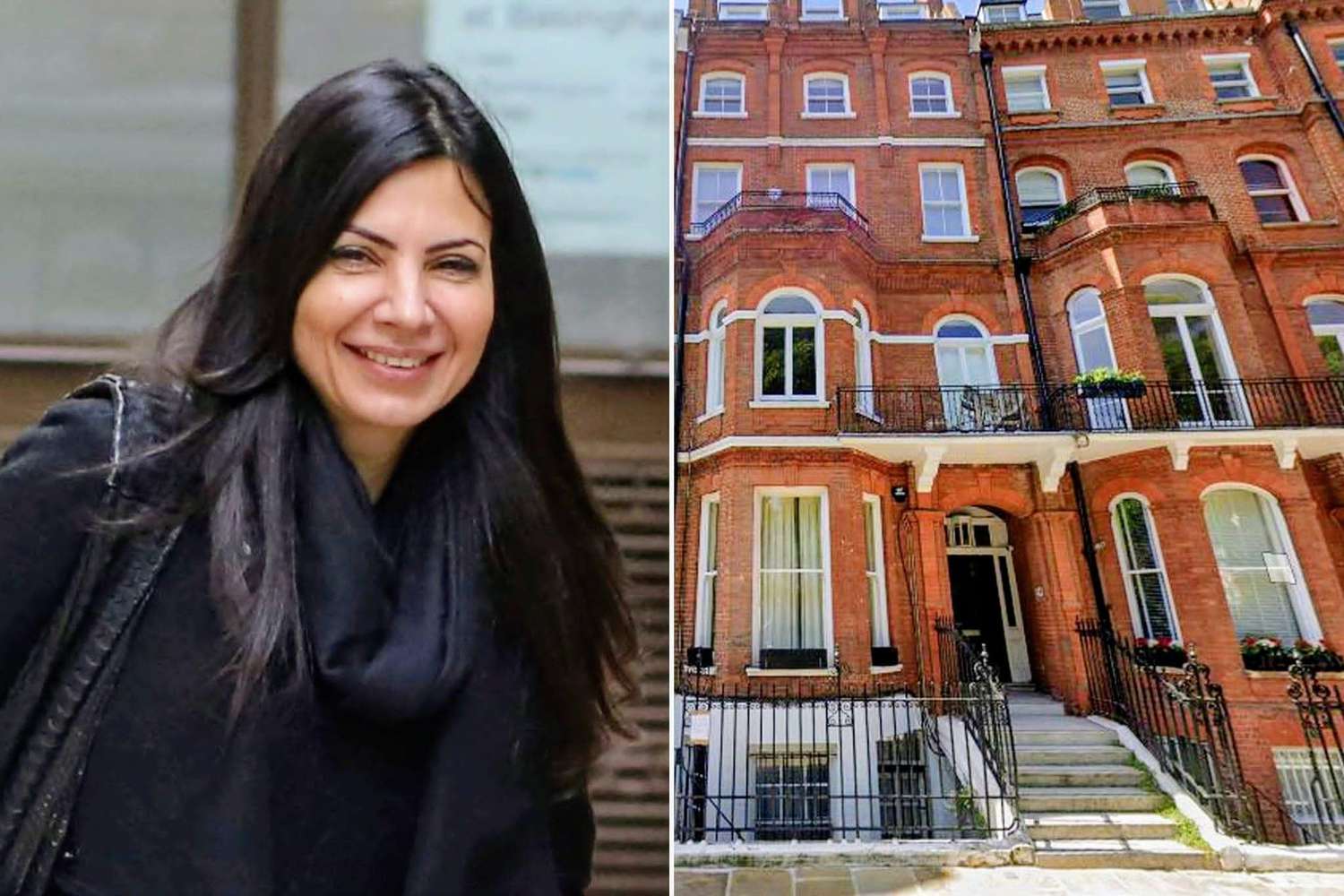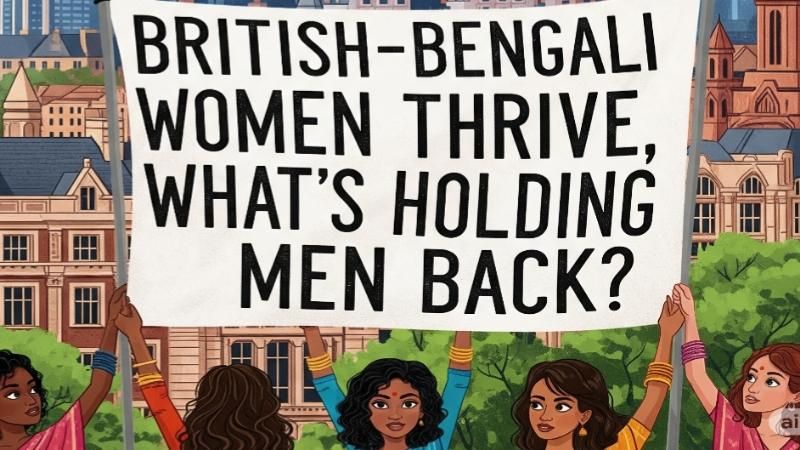A powerful narrative of progress is unfolding within the British Bangladeshi community, particularly among its women. While educational attainment has long been a significant marker of advancement, the success of British-Bengali women, especially those from the second, third, and fourth generations of Sylheti descent, is now transcending academics, making impactful strides in the professional world, business, and even the highest echelons of politics. This inspiring trajectory, however, casts a sharp light on the persistent and often under-addressed struggles faced by British Bangladeshi men, creating a notable and growing gender disparity within the community, Daily Dazzling Dawn realised.
For decades, British-Bengali women have been quietly, yet resiliently, challenging stereotypes. Their school achievement has not only surpassed that of white British pupils over the past three decades, but their access to university has also consistently been higher. For example, by 2017, 25% of British Muslim women aged 21-24 held degrees, exceeding the 22% of British Muslim men in the same age group. This trend continues into higher education, with British-Bengali women showing remarkable determination despite facing unique barriers, including less attendance at the most prestigious universities and, in some cases, higher dropout rates compared to their white British peers. Yet, their sheer tenacity in the face of these hurdles, often compounded by racism and discrimination in the labor market demanding even higher qualifications for them to compete, speaks volumes about their drive. Factors such as language barriers (English as an Additional Language), disadvantaged economic backgrounds, limited information on university options, financial constraints, and cultural expectations regarding family responsibilities have not deterred them.
Beyond the Classroom: Women's Expanding Influence
The impact of British-Bengali women is no longer confined to academic success. They are increasingly visible and influential across various sectors. The rising number of highly educated British-Bengali women is translating directly into greater representation in professions traditionally less accessible to their community. From law and medicine to finance and technology, they are breaking barriers and building successful careers. This is particularly evident among the second, third, and fourth generations, who are leveraging their British education and cultural fluency to navigate and excel in diverse workplaces. While precise figures for specific professions are evolving, the overall trend of rising employment among Bangladeshi women, despite still facing the highest unemployment rate among all groups (9% in 2022 for the combined Pakistani and Bangladeshi ethnic group), underscores their growing presence in the workforce.
British-Bengali women are also emerging as dynamic entrepreneurs, launching and leading successful businesses. Recent initiatives, such as the UK government's SheTrades Programme, saw Bangladeshi female entrepreneurs embark on a landmark trade mission to the UK in February 2025, showcasing their inventiveness and tenacity across sectors from food and textiles to IT. This highlights a concerted effort to foster their entrepreneurial spirit and build new trade relationships. Moreover, data from 2007 indicates that 20% of Bangladeshi women aspire to be their own boss, almost double the 11% for White women, suggesting a strong entrepreneurial drive.
Perhaps one of the most visible indicators of their burgeoning influence is in politics. From local councils to the Houses of Parliament, British-Bengali women are making their voices heard and shaping policy. Rushanara Ali, the first British MP of Bangladeshi origin elected in 2010, serves as a powerful symbol of this shift, paving the way for more women to enter public service and leadership roles.
All four British-Bangladeshi MPs are women. Currently, the British-Bangladeshi MPs are Rushanara Ali, Rupa Huq, Tulip Siddiq, and Apsana Begum, and to date, no British-Bangladeshi man has been able to become a member of the British Parliament. Although former Jubo League and Awami League leader Foysol Choudhury, a Member of the Scottish Parliament who created controversy by bringing Bangladesh's deposed, forcibly elected Prime Minister Sheikh Hasina to the Scottish Parliament, claims himself to be a member of the British Parliament, he is not a member of the British Parliament.
This increasing political engagement reflects a deep commitment to community advocacy and broader societal change.
The Divergent Path: Challenges Facing British Bangladeshi Men
In stark contrast to the burgeoning success of British-Bengali women, men within the community often find themselves facing a different, more challenging landscape, particularly for the earlier generations of Sylheti migrants who arrived with less formal education and focused on labor-intensive industries.
Despite some historical advancements, British Bangladeshi men continue to contend with high rates of in-work poverty and one of the lowest economic-activity rates overall. In 2002-03, around 18% of economically active Bangladeshi men were unemployed, the highest of any enumerated ethnic group, and significantly higher than White men at 5%. While more recent data for the combined Pakistani and Bangladeshi group showed 75% employment for men in 2022, this is still lower than the national average and other ethnic groups. Many remain concentrated in semi- and unskilled manual jobs, with over 60% of working Bangladeshi men employed in the 'distribution' industry and 52% in the restaurant sector alone, according to a 2001 report. Racial discrimination in the labor market remains a persistent barrier, often requiring higher qualifications to compete effectively. New arrivals, particularly, face severe struggles in securing work, even at half the minimum wage, trapped by high living costs and exploitation within some community-owned businesses.
Perhaps the most alarming disparity lies in mental health. British Bangladeshi men are among the lowest number of people referred to primary care NHS Talking Therapies services. In 2019-2020, only 3,731 Bangladeshi men were referred, compared to 1,157,582 White British individuals. Critically, they are also among the most likely to experience a deterioration in their condition once referred, highlighting significant barriers to effective support. Cultural norms within the community often dictate that men are stoic providers, discouraging open discussions about emotions. The immense pressure to be the sole breadwinner, compounded by economic insecurity and potential unemployment, can lead to severe emotional suppression. Barriers to seeking help include a lack of awareness of services, language difficulties, negative experiences with GPs, and a prevailing lack of trust in healthcare professionals. There is an urgent need for targeted mental health awareness campaigns within British Bangladeshi Muslim communities, with suggestions that involving women in outreach efforts could be particularly effective, as men may be more comfortable confiding in their female family members.
Bridging the Divide: A Community in Transition
The 2021 census reveals a British Bangladeshi community of over 644,000 individuals in England and Wales, with an almost equal proportion of women and men. This community, predominantly of Sylheti origin, has a long history of resilience, evident in their collective actions against racial violence and the establishment of vibrant community centers and businesses.
While the community has celebrated significant advancements, particularly among its women and the later generations of Sylhetis who have fully embraced the opportunities available in the UK, the disparities between genders are undeniable. The success of British-Bengali women is a testament to their strength and adaptability, often navigating both traditional expectations and modern ambitions. Concurrently, addressing the systemic and cultural factors contributing to the struggles of British Bangladeshi men is paramount. This includes tackling labor market discrimination, improving access to mental health support, and fostering spaces where men can openly discuss their challenges without fear of judgment.
As the British Bangladeshi community continues to evolve, a holistic approach that celebrates the achievements of its women while actively supporting its men will be crucial for ensuring equitable progress and collective well-being for all.








.svg)

